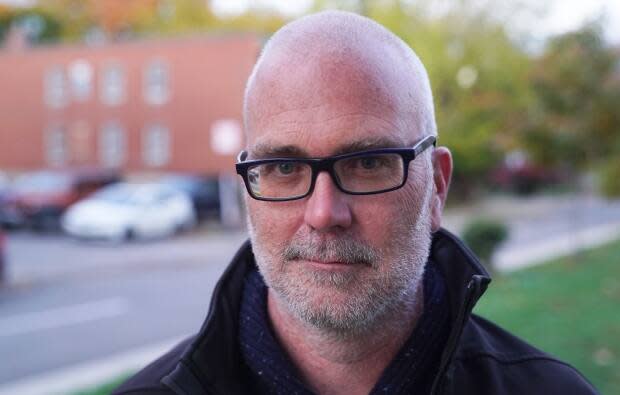Let cities rein in construction noise, Leiper says
With complaints piling up from residents frustrated by the early-morning racket of construction crews, one Ottawa city councillor says it's time for the Ontario government to hand control of noise bylaws back to municipalities.
"Another year of this is going to drive residents insane," said Kitchissippi Coun. Jeff Leiper, who plans to bring a motion to the next meeting of city council.
Early in the pandemic, on April 7, the provincial government suspended local rules governing construction noise for an 18-month period, through to October 2021.
Construction on hospitals and COVID-19 assessment centres can take place around the clock. Other construction is allowed from 6 a.m. to 10 p.m., seven days a week.
The longer hours help to stagger shifts, limiting the number of workers on job sites to make them safer, the government says.
In normal times, residents in Ottawa's established neighbourhoods could call bylaw to complain about work being done before 7 a.m. and after 8 p.m. on weekdays, and before 9 a.m. and after 7 p.m. on weekends and holidays.

Leiper said bylaw officers and 311 call takers now know to explain that Queen's Park has lengthened construction hours, but complaints flow into his office, too.
"It's a regular background noise in my office — 6 a.m. start times," said Leiper. Staff have told him the city has received more than 250 bylaw complaints about noise in the early morning, but he tells residents to be patient because bylaw officers are also busy enforcing COVID-19-related restrictions.
Industry needs the leeway
Keyvan Abedi is one of those frustrated residents, and has even sent the city videos of work starting at 5:40 a.m.
He lives in the Rideau Street/ByWard Market area beside a job site for new highrises, where the sound of dynamite and pile-driving start at 6 a.m., affecting his ability to focus. He eventually gave up working from home and asked permission to go back to his office.
"A lot of people are really affected by this pandemic," said Abedi. "You're worried about so many other things in your life, and now you also have to worry about the fact you're not going to get a full night's sleep, or even half a night's sleep, because you have to wake up in four hours to the sounds of construction."
What I worry about the most is... it's going to be the new normal. - Keyvan Abedi, resident
The Greater Ottawa Home Builders' Association is sympathetic to those concerns, said its executive director, Jason Burggraaf. But he said the residential construction industry needs to carefully schedule tradespeople so they don't overlap on the job site.
"We want to continue supplying the amount of homes we need to match Ottawa's population, and right now with COVID restrictions, we need the extra hours in order to do that," he said, pointing out local builders are completing 500 or 600 homes a month.
Adam Wilson, a spokesperson for the Municipal Affairs Minister Steve Clark, agreed.
"There are tens of thousands of residential units being built in Ontario this year. Those projects are critical to the thousands of families who need a roof over their heads," Wilson said in an email.
New, noisy normal
But from what Abedi observes of work crews, he's not convinced they need those extra hours. They might start at 6 a.m., but he sees crews pack up as early as 2:30 p.m., and said they're not all following physical distancing guidelines.
"I think what they like is having that extra time, and it gives them more flexibility in their projects," said Abedi.
If it were truly a temporary emergency measure for COVID-19, the suspension of local noise bylaws should be in place for a few weeks, not a year and a half, he said.
"What I worry about the most is... it's going to be the new normal."
Leiper will ask his council colleagues to urge Clark and the provincial government to return control to municipalities sooner rather than later.
He's focused on noise at residential construction projects, and said downtown infill projects might need to be treated differently than new subdivisions. Hospitals and transit projects, meanwhile, have different exemptions.

